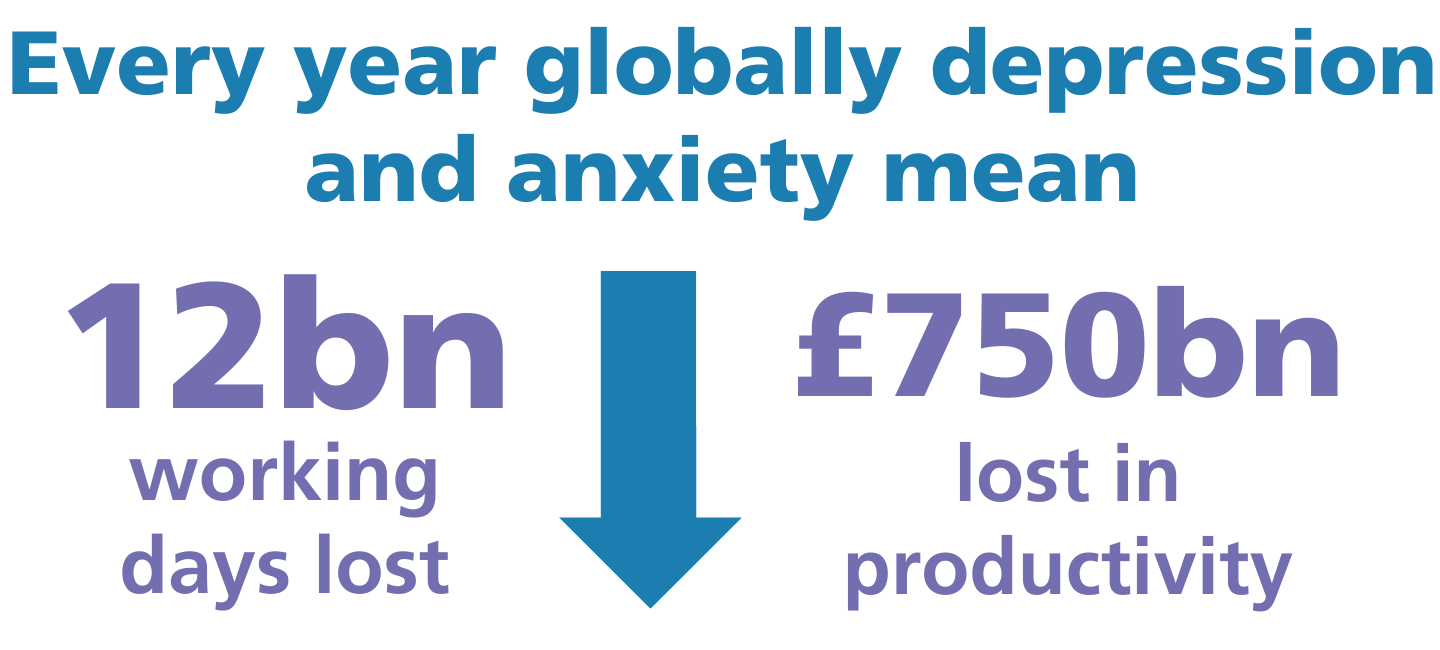Work can have a positive or negative impact on people’s mental health and wellbeing, depending on a range of factors. Every worker, no matter what their job or where they work, has the right to a safe and healthy working environment.
In 2022, 60 per cent of the world’s population was employed.1

The average person spends 90,000 hours, or a third of their lives, at work.2

The 2017 Stevenson/Farmer review of mental health and employers in the UK3 stated “more people are in work with a mental health condition than ever before, but many individuals with mental health problems are struggling emotionally, off sick, less productive, or leaving employment.”
It is crucial to take action in the workplace to address these issues. Work must be ‘good work’4 and ‘decent work’. According to the World Health Organization (WHO), “decent work supports good mental health by providing a livelihood; a sense of confidence, purpose and achievement; an opportunity for positive relationships and inclusion in a community; and a platform for structured routines, among many other benefits.”5
Employers must do everything they can to create environments and cultures that are preventative, positive and supportive, offering people a sense of fulfilment and purpose.
On the flip side, work can sometimes have a negative impact on people’s mental health. The WHO has identified excessive workloads, long hours, unsafe conditions and job insecurity as factors which can either cause mental health problems or exacerbate existing ones.
Estimates of the scale and cost of mental health problems vary by country. In September 2022, the WHO claimed that globally 12 billion working days are lost every year to depression and anxiety, at a cost of about £750 billion a year in lost productivity.6 In May 2024 Deloitte put the cost of poor mental health to employers in the UK at £51 billion per year.7

It is clear that more can, and must, be done not just to boost productivity but also to improve the lives of all working people by creating safe, healthy, sustainable and supportive working environments. Indeed, the British Health and Safety Executive (HSE) has made mental health a key focus of its 10-year strategy. It aims to reduce work-related ill health, sickness and absence caused by stress and poor mental health. The HSE recognises that the most commonly reported causes of poor mental health in Great Britain are now stress, depression and anxiety, with a current increasing trend.
This white paper from the Occupational Safety and Health Stakeholder Alliance (‘OSH Alliance’) has been published in support of the HSE’s strategic focus on mental health in Great Britain. It also supports the international calls to action by the International Labour Organization (ILO) and WHO on mental health at work.8 Importantly, it supports the right of all working people to work in safe and healthy environments.
It explores the value of preventative approaches and positive mental health at work. It identifies what is currently holding back progress on this issue and sets out a number of calls to action for key stakeholders and agencies in the UK.
We must work collectively to reduce instances of work-related ill health associated with mental health risk factors and promote positive mental health at work.

